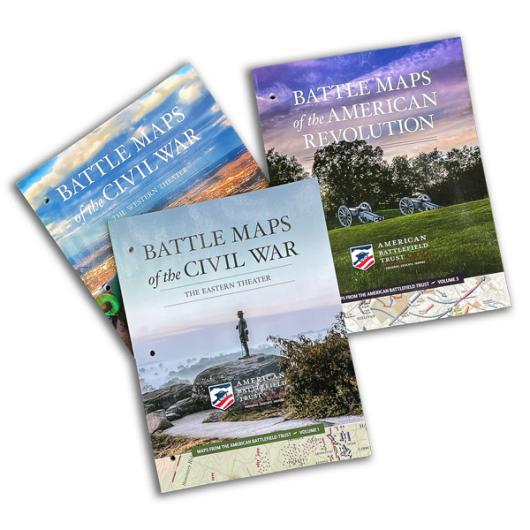Meet John Brenan of Corvallis, Oregon
An interview with a Color Bearer member
We're not curing cancer or ending world hunger, but we're doing something significant, we're doing it well, and we're doing it right. I'm proud to have my name associated with the American Battlefield Trust.
John Brenan, Color Bearer

American Battlefield Trust: What moved you to first give to our organization?
John: In 2001, my brother in law, John Morgan, and I spent the better part of 2 weeks visiting Civil War battlefields and sites from Fort Sumter on up to Gettysburg. It was a wonderful experience which we both relished. We were most appreciative that previous generations had preserved these places, and did so with the specific intent that, decades later, Americans like John and me could do precisely what we did.
Along the way, we became aware of an organization known then as the Civil War Preservation Trust. When we questioned Park Rangers about it, we heard nothing but rave reviews. We both felt this was something we'd like to be a part of, that we would like to do for future generations what was done for us. So we each joined when we got home, and I've never regretted it.
What do you enjoy most about being a Color Bearer?
When you give to a huge charitable organization, such as Red Cross or United Way, you're one of millions, somewhat lost in the shuffle. Conversely, involvement with small local organizations, like the town library, provides a sense that you're very much a part of it.
Being a Color Bearer hits a sweet spot right in between for me. It combines the satisfaction that comes with being an integral part of an organization with the good feeling of being a contributor to a national organization of substance doing important things. The best of both worlds, if you will.
What is your favorite battlefield you’ve visited?
My favorite Civil War site is not a battlefield, but Appomattox Courthouse. Once I got past the parking lot, I was struck by the fact that the entire place looks just as it did 155 years ago when it hosted such a tremendously important moment in our nation's history. It's not just the buildings, but the sweeping views visible along the Lynchburg Road, as evidenced by a photo included on a sign at the spot where Lee and Grant met for the second time.
Nothing else surrounds it; nothing modern encroaches on it. I experienced a great sense of history at many battlefields, but none for me was comparable to this small enclave of a dozen or so buildings.
If you could travel anywhere in the world, where would you go?
Knee problems limit my travel, but I'll choose the stadium where they're holding the commencement ceremony when my youngest grandson graduates from college. He's currently in second grade in Florida, and I'm 74 years old in Oregon. So, for this to happen, I'd have to make it to at least 88 and be in good enough shape to cross the continent. I'd take that over a trip to Europe any day.
What would you like to pass on to future generations?
It's pretty hard to know where you want to go if you don't even know where you've been, and, if you can't pinpoint your destination, any road will take you there. History provides the base, the knowledge of the road being traveled, and the starting point for your own journey.
For example, from the starting point of "All men are created equal," we see the jump off for our democratic government. Major stops along the route include universal male suffrage, emancipation, citizenship, and voting rights for non-whites, and then female suffrage. Understanding prior steps on the path and placing them in proper perspective is fundamental to crafting a vision of where the journey should lead next.
If you could meet any historical figure, who would you choose and why?
An easy question for me. It would definitely be Winston Churchill. In my opinion, the Second World War is the defining moment in world history. All the centuries ( millennia actually) of empire building (Alexander the Great, Rome, the Ottomans, the Byzantines, Britain itself ...) led up to it; so much of what has happened since, including the end of the Age of Empires, came as a result of it. Churchill saw as far back as 1899 that 20th century weaponry would leave the victors as broken and impoverished as the defeated in later wars, which came to pass twice. Four decades after making that grim prophecy, Churchill was, far and away, the most important figure in the second such epochal event. I have about 1,000 questions I'd love to ask him.









